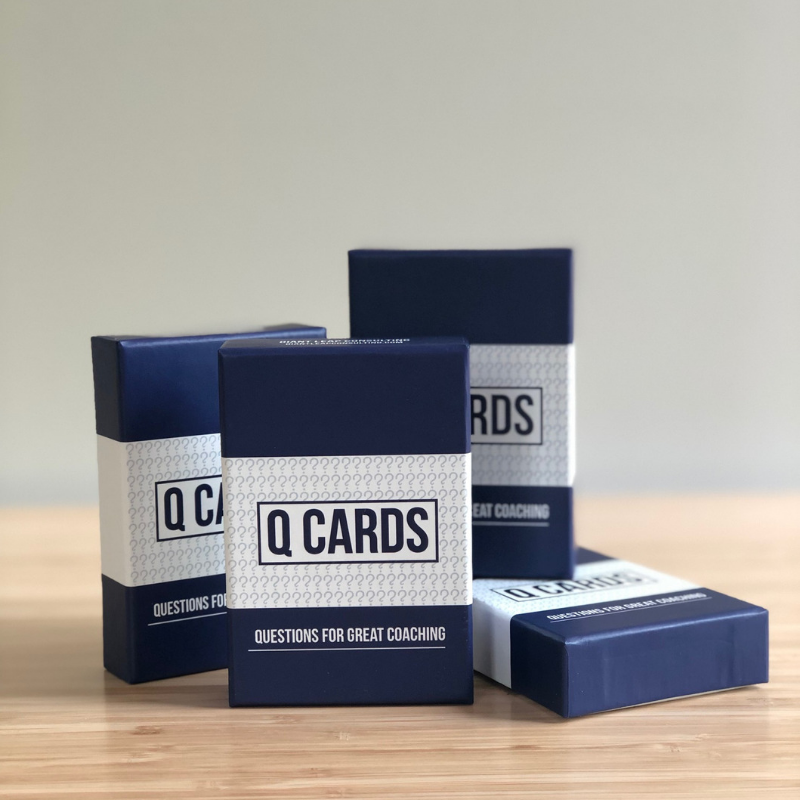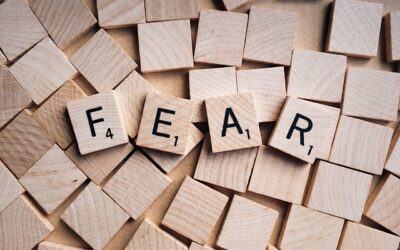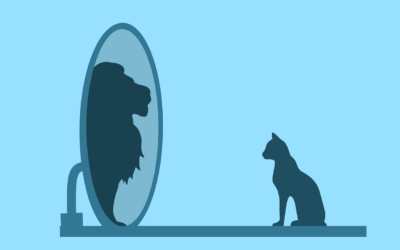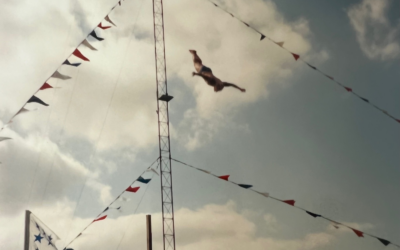As a coach, if you’re not constantly searching for ways to improve yourself, why should you expect your coachees to? Effective coaching, whether for the coach or coachee, is about personal growth and improvement. Reaping that growth requires ongoing evaluation, goal-setting, and action. While self-evaluation is uncomfortable, it’s always worth it in the long-run (and often in the short-run too!).
Becoming a better, more effective coach requires dedication and commitment to a lifetime of learning.
In my two decades of leadership coaching and consulting, I’ve learned that willingly and intentionally embracing vulnerability is an act of self-respect. As I’ve written in my books, the journey to the center of yourself is the most wonderful adventure a person can take. This philosophy is the foundation of my roles as a coach, leader, father, and husband. This year, it’s even inspired me to design a coaching course that will teach you how to do the same.
Introducing Q Cards: Fast Start Course
Become An Effective Coach Faster
Becoming a better, more effective coach requires dedication and commitment to a lifetime of learning. The most versatile tool that a coach has is a suite of powerful questions. It’s your questioning that will make all the difference to the transformation of the coachee in front of you. So I thought, “What would have vastly improved my effectiveness when I was first starting out as a coach 20 years ago?” My answer? — An organized framework of powerful questions that can be used to help coachees have breakthroughs in their lives. That answer led me to create Q Cards, and I’m proud to introduce them to you. Using this tool, you’ll have substantial and meaningful engagement with your coachees in half the time.
Three Powerful Ways to Enhance Your Coaching Effectiveness
1) Answer the “Holy Shift” Question
Here’s one example of a powerful question, and it’s only four words. In my opinion, they’re the most important words you’ll ever learn in the English language. And the question is, in any given situation that might be exasperating you, when you are frustrated, you’re not getting to where you want to get to, when you’re perplexed by some complicated situation that is setting your hair on fire, ask yourself: WHAT DO YOU WANT? Ask your coachee and ask YOURSELF. The answer could change your career completely — and in some cases, just in time.
While your knowledge and expertise to do your job effectively are vital to your success at work, your emotional intelligence can also affect your success.
2) Measure Your EQ
On a scale of 1-10, how does your EQ rank? Good coaches are “emotionally intelligent.” Emotional intelligence (EQ) relates to your ability to understand your own emotions and the emotions of people with whom you interact. While your knowledge and expertise to do your job effectively are vital to your success at work, your emotional intelligence can also affect your success. If your EQ is low, odds are you won’t have meaningful connections with coachees. However, if your EQ is too high, you may have difficulty removing your coaching hat at the end of the day and may want to consider how to devise and maintain emotionally healthy boundaries.
Asking tough questions sometimes leads to surprising answers that we never expected — from others and from ourselves.
3) Embrace Your Imperfections
How do you handle personal mistakes? Denying your shortcomings impacts your coaching abilities. Owning up to your weaknesses and leading from a place of connection instead of fear (of being found out as being imperfect) will make you a more relatable and compelling coach. Regardless of station, people can often sense when others are putting up a façade, plus that wall you build around yourself to hide your flaws also does a pretty good job of keeping your coachees out. Besides, mistakes don’t have to be personal failures, as the perfectionist believes — they can be mile-markers on the winding road of progress.
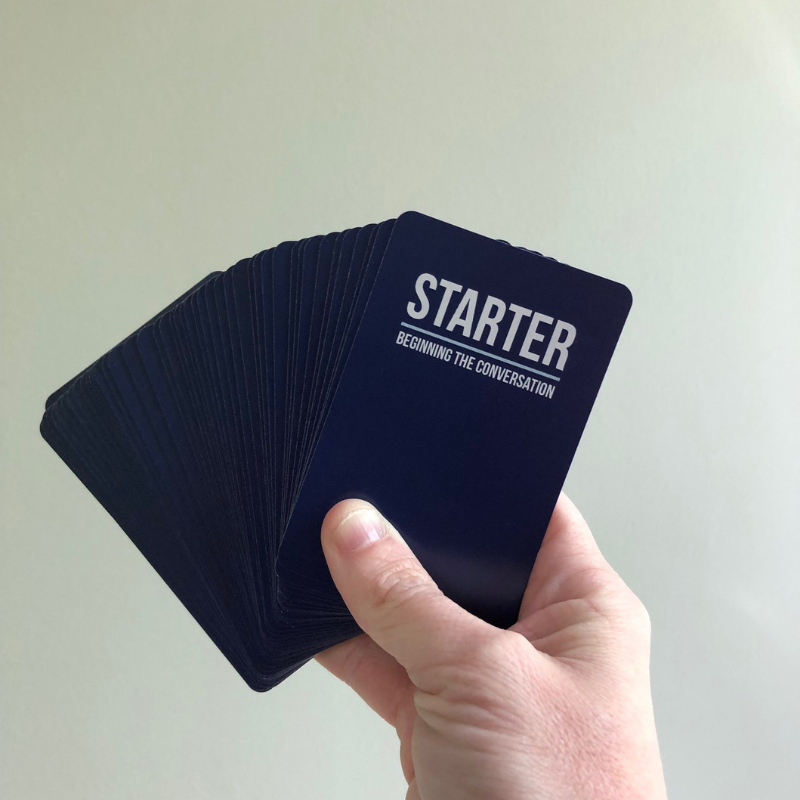
When you challenge yourself, you challenge those with whom you work. Asking tough questions sometimes leads to surprising answers that we never expected — from others and from ourselves. I designed this Q Cards course as a means to help coaches become more effective and to facilitate meaningful conversations between them and coachees, but what I’ve found is that it is so much more. It’s a tool for deep personal work between people. If you are looking to accomplish breakthroughs in coachees’ thoughts, decisions, and actions, this is the tool for you. But be warned, you may experience the same results and find your coaching career forever enhanced.
